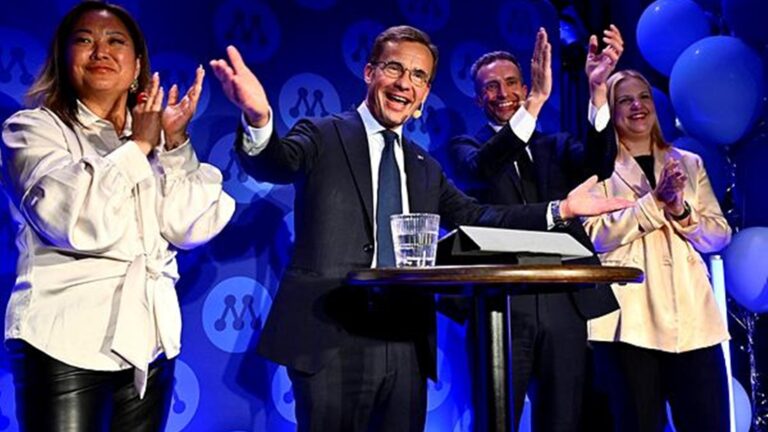Sweden’s European Parliament election marked the first electoral setback for the country’s far-right populist party, which finished in fourth place despite winning more than 13% of the vote, provisional figures showed on Monday.
This makes Sweden one of the few countries in Europe where the far-right is on the retreat: Preliminary figures show the Sweden Democrats are on track to win 13.2% of the vote, down 2.2 percentage points, and retain their three seats in the European Parliament.
They came in behind the opposition Social Democrats, Prime Minister Ulf Christersson’s conservative Moderate party and the Greens, who won the most seats in Sweden’s 21-seat European Parliament elections on Sunday.
The Social Democrats are expected to win five seats with almost a quarter of the vote, while the Moderates are expected to win four and the Greens three. The Sweden Democrats’ poor performance was “the biggest sensation of election night,” said Mats Knutsson, a political analyst at Swedish broadcaster SVT.
He said the poor showing may also be due to the intense criticism the party faced after TV stations accused it of running fake social media accounts, slandering political opponents and allies, spreading doctored videos and posting racist comments.
Knutson also noted that immigration was not a particularly important issue for voters in this election.
Christine Nissen, an analyst at the Copenhagen-based think tank Europa, said immigration was not a top issue in northern Europe, but in southern Europe “issues like immigration are important to voters.”
The Sweden Democrats, who currently support membership in the 27-nation European Union, have toned down their rhetoric and expelled lawmakers who make openly racist comments.
Since then, they have grown from a minor movement with less than 2% support to the second-largest party in the country. In the 2022 parliamentary election, the Sweden Democrats are set to win nearly 21% of the vote, up from 17.5% in the last poll four years ago.
They garnered support by capitalizing on growing fears about crime in segregated immigrant-populated areas, many of which are immigrants who have not been able to integrate into Swedish society.
The party, which has a tough stance on immigration, supports a three-party centre-right government in Sweden’s 349-seat parliament but is not a member of the Swedish parliament.
The Kristerson government has been toughening its stance against organized crime, increasing prison sentences for gang members and introducing stop-and-frisk zones to allow police to crack down on crime.

